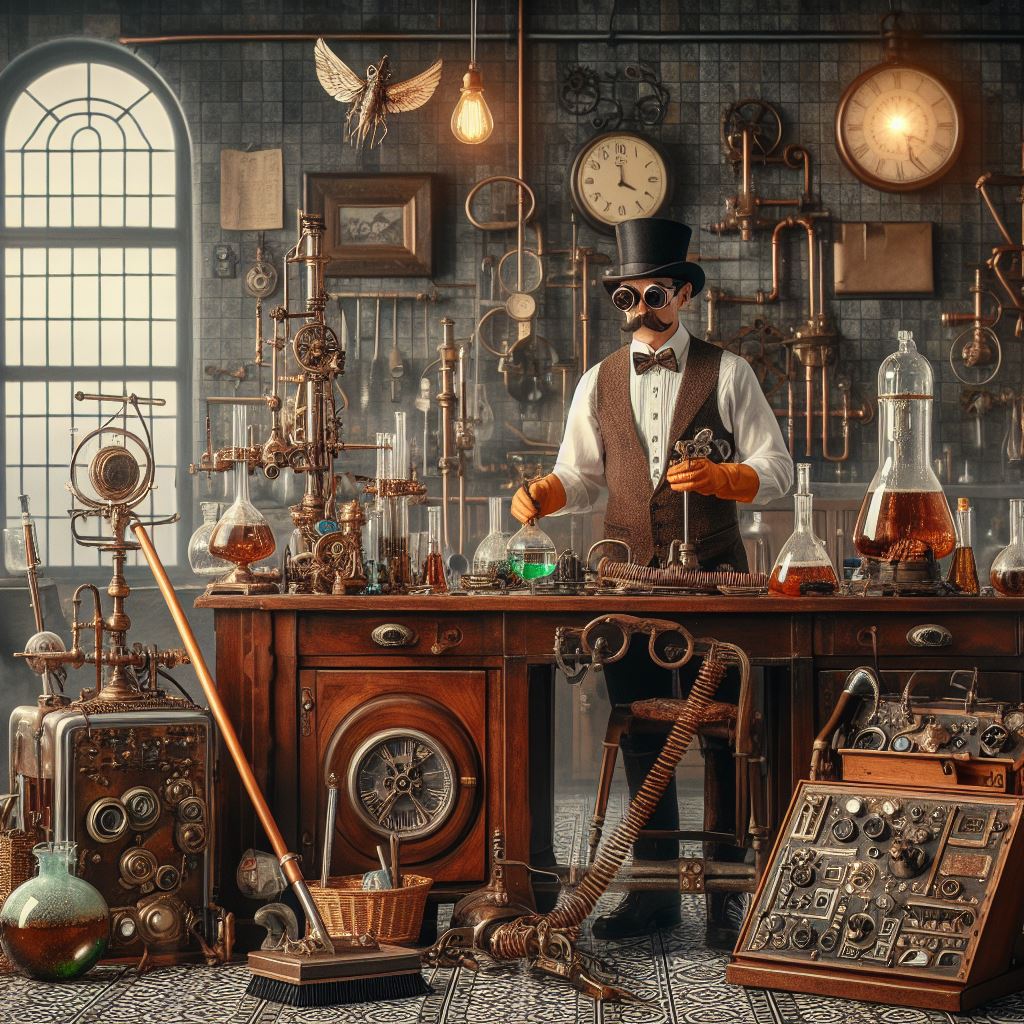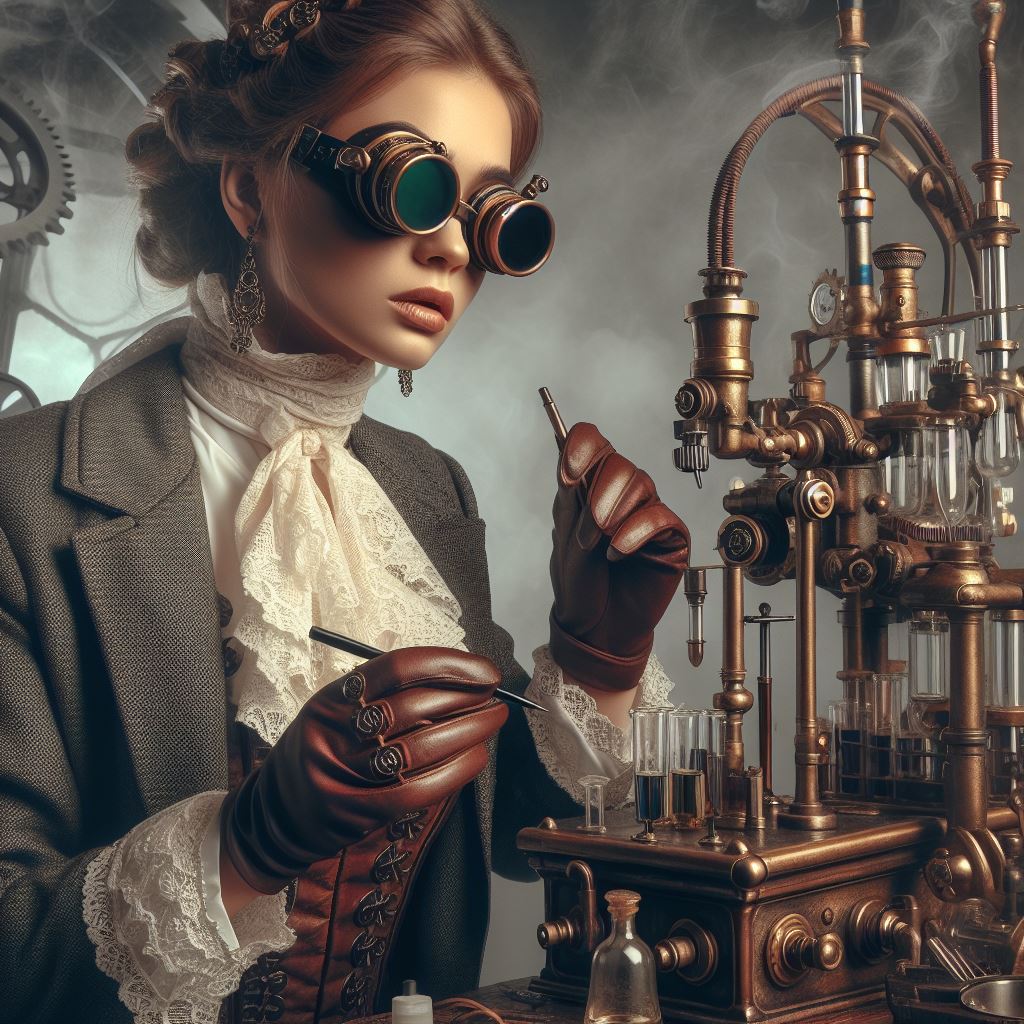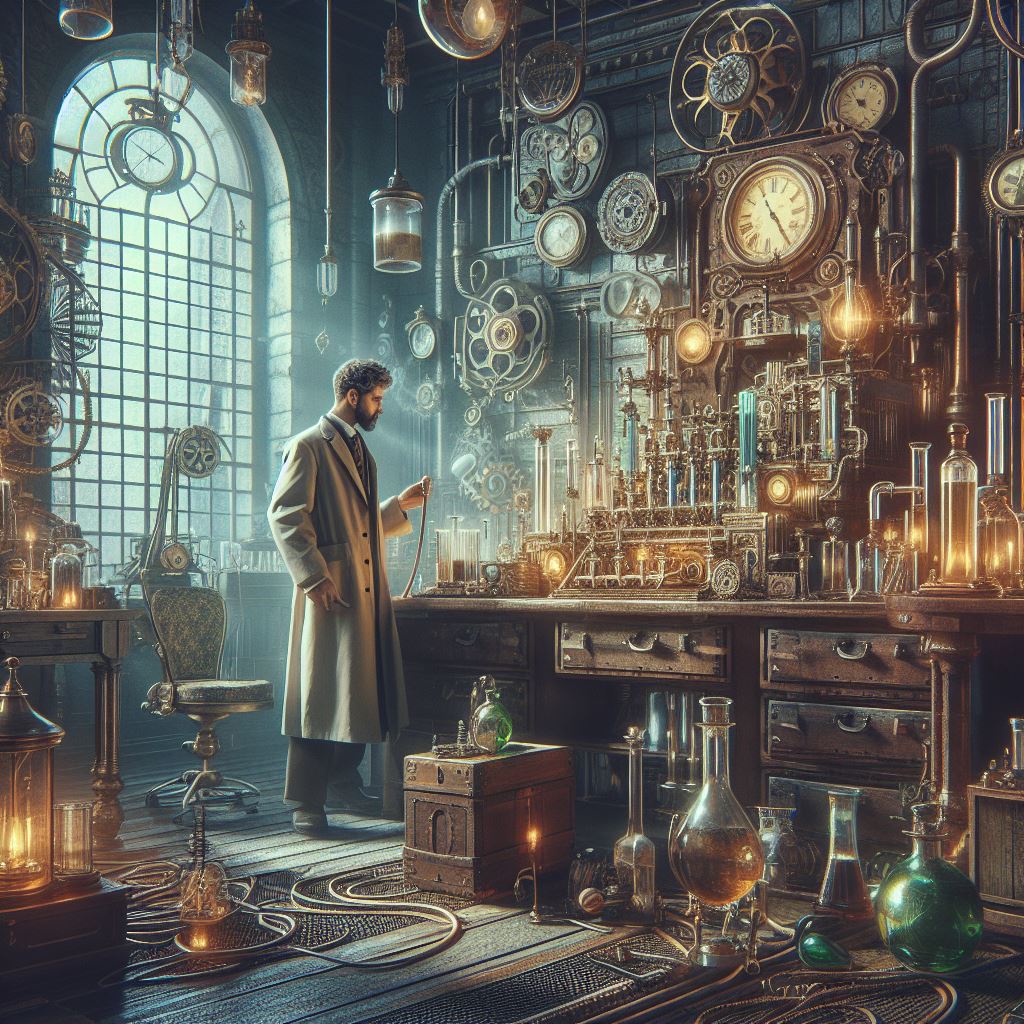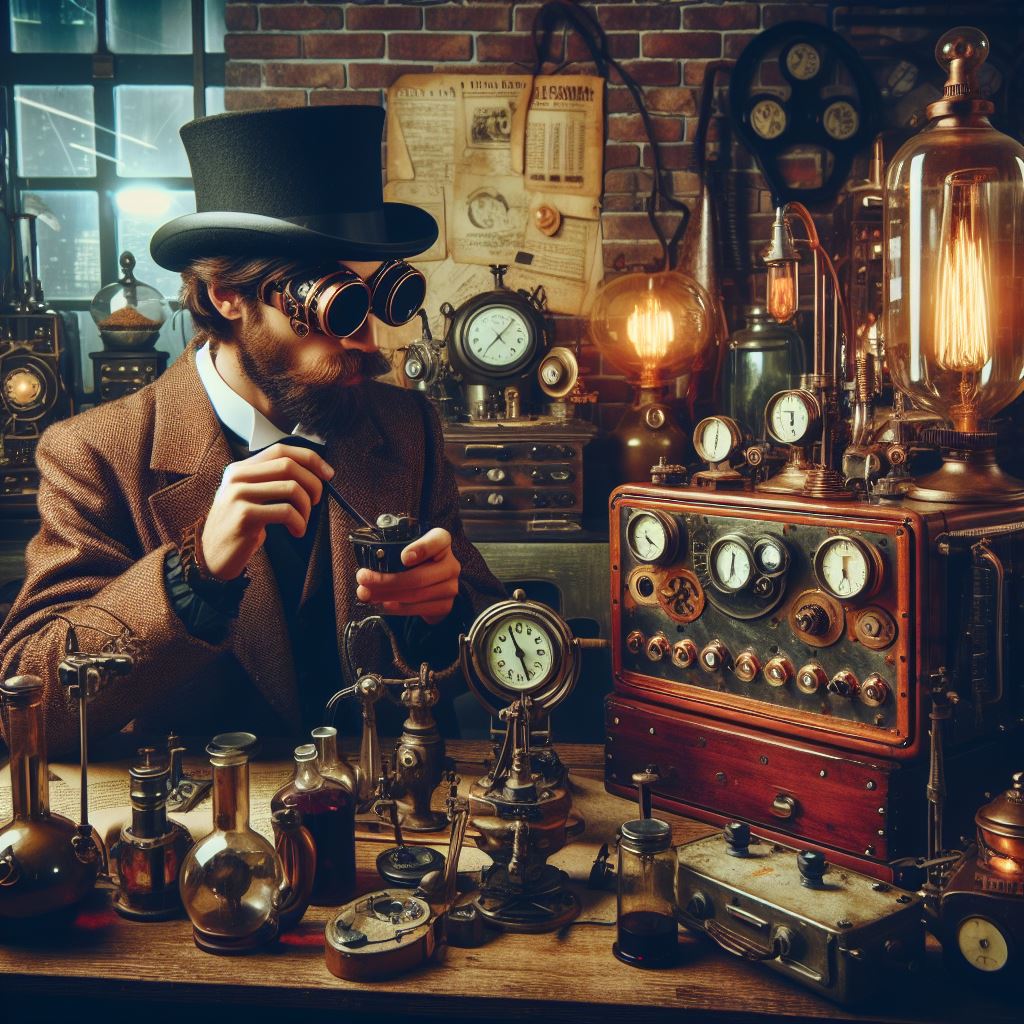During my career in isotope ratio mass spectrometry, I’ve had the pleasure of interacting with lab managers in multiple labs and in a number of countries. I feel that their role, whilst highly valued by many scientists and researchers, doesn’t get much visibility, hence they are the subject of today’s blog.
I should point out that the inexact qualifier “lab manager” can encompass a variety of job titles requiring a variety of different skills, backgrounds and education, dependent on the lab, country and application. So, for clarity, when I refer to lab managers, I mean the people that lovingly maintain the isotope ratio instruments that are so critical to our understanding of the Earth and beyond.

With that point made, let’s explore what a lab manager really does. No surprises, it differs widely from lab to lab. I’ve known lab managers that spend their time maintaining the infrastructure that surrounds and support the instruments, yet leave the maintenance of the instruments themselves to others. In these situations it is possible the instruments are operated with service contracts in place, typically managed by the instrument vendor. Here at Isotopx we’re happy to maintain even very old instruments (we still look after some Sector 54 TIMS instruments from the 1990’s!) but equally some vendors prefer not to do this and pass on the maintenance to third parties.
Click the “+” button to read comments from a lab manager
“I find managing an isotope geochemistry lab really stimulating as it gives me the opportunity to interact with many different people and to be involved in high quality, fascinating and varied research projects, in areas ranging from cosmochemistry to environmental geochemistry. It is incredibly rewarding helping people carry their projects through, finding solutions to their analytical challenges and seeing the outcome of that. On the flip side, at times it can be complicated to keep on top of what all the members of the group are doing, to juggle very different topics and to manage people’s expectations of what is feasible.”
“With many different research projects carried out simultaneously, it can also be challenging to organise people’s work in the lab, especially when there are conflicting research projects, either because of cross-contamination issues (not all isotope systems/sample matrices can be analysed in the same lab/on the same instrument) or because of instrument scheduling issues during busy periods. Equally, it can be delicate to make sure there’s good communication between lab users and that everybody follows lab protocols. The job can also be quite stressful when instruments break down and you are aware that PhD students and postdocs on time-limited contracts are anxious about getting data in time for their deadline. But, at the end of the day, it is a fantastic job where each day is different!”
Other lab managers I have known do take the responsibility of the operation and daily maintenance of the instruments as well. These people tend to become intimately familiar with the workings of the instruments, and become extremely employable by instrument vendors due to their unique skill set (more on this later).
What other tasks are involved? The list is long! I’ve documented just a few of them below.
Organizational skills:
A lab manager role is likely to involve some degree of sample preparation, or at the very least, the maintenance of the equipment and consumables used for sample preparation. This requires keen organisational skills. I know of one lab manager who has a sophisticated bottle labelling system, both by name, and by colour (to enable identification at a glance). Too much? Far from it! I think the type of personality that leads to this level of attention to detail (you will know if it is you…) can be very helpful managing a busy lab.

Data management skills:
The role may also involve data handling, processing and storage. The value of the careful storage of geochemical data, including all of the parameters around that data, is being recognised more and more. A lab manager tasked with this is likely to need to learn multiple software packages and may even require some programming skills to ensure full data integration. But you’ll also have the satisfaction that you are helping enable future science.
Click the “+” button to read comments from another lab manager
“I began my foray into mass-spectrometry about 25 years ago as a junior graduate student. My initial training was achieved by focusing on solution and laser ablation quadrupole inductively coupled plasma mass spectrometry systems and I quickly became drawn toward the instrumentation side of analytical geochemistry. Wanting to improve my knowledge of mass spectrometry techniques I pursued a doctoral degree project with an isotope geochemistry focus. This portion of my training introduced me to working in clean rooms, performing elemental purifications by ion-exchange chromatography and thermal ionization mass spectrometry. Over the course of my graduate studies I came to the realization that I most enjoy operating at the interface between researchers and instrumentation which led me to pursue a career in laboratory management.”
“Today I manage the WM Keck Collaboratory for Plasma Spectrometry at Oregon State University. Our facility exists within the University’s Core structure and focuses on training students and researchers in sample preparation and processing and the operation of inductively coupled emission and mass spectrometers for the analysis of trace metal concentrations and isotopic composition. As the manager of a Core Facility within a tier 1 research institution I get to work with a wide variety of sample types ranging from natural waters, to rocks and minerals, agricultural feedstocks, salmon otoliths, and even beer and wine all in support of cutting-edge research occurring across virtually all sectors of the University. In my opinion, laboratory management is an incredibly rewarding and exciting career that provides the opportunity to interact with many different researchers at varying levels in their careers while simultaneously remaining involved in exciting research happening across many disciplines.”
Instrument maintenance skills:
The maintenance of the lab itself also requires a number of skills. You’re likely to need support from the institute that contains the lab – when there is a power outage you need to move fast! So developing a network of key people, particularly those that manage the site, is critical. You’re also likely to become handy with a spanner, as routine jobs (re-connecting the exhaust extraction, switching over a backing pump) are probably done quickest on your own.

Interpersonal skills:
The last point highlights one of the most valuable skills to be a lab manager, that of people skills. Lab managers liaise with a huge range of people, from PhD students to professors, and from analytical instrument vendors to suppliers of chemicals and consumables. Each one may require a different technique to build their trust and get them on side. Just envisage a situation where the key mass spectrometer has decided to stop working. You don’t have a service contract, so where do you start? Perhaps call in a favour with an engineer at the mass spec supplier; maybe speak to another lab manager at a lab with similar instrumentation; or perhaps call the university technical team and see if they can help. In each case you’ll need powers of persuasion to make progress – people skills really are important.
Where do lab managers come from? In my limited experience they are often geochemists who already have a wealth of hands-on instrument experience and they see this is a tangential but equally rewarding alternative to pursuing a pure academic career. But I’m generalising here, and in fact each lab manager I have met has a slightly different background. What they have in common is a can-do attitude and an ethos of hard work.

How have I interacted with lab managers? I started my career in engineering, particularly in test and installation. During the installation phase, the lab manager was the key to my success. They were the solution provider to me, the “outsider” in a wide range of circumstances. Typical installation engineer questions such as “can you acquire a meter to measure the flow rate in this extraction line”, or perhaps “what are your typical daily temperature fluctuations in the lab” would always be directed to the lab manager. In my experience these requests were dealt with quickly and thoroughly, so I owe them a great debt.
Later in life when I moved to sales and marketing my relationship with lab managers would be more centred around what their analytical requirements were, and how well suited my particular instrument solution might be. The lab manager is commonly involved in the decision process for new instrumentation (as they should be). My experience here has been that the knowledge they bring to the table is different (and complementary) to that of the professor who submitted the grant proposal. The lab manager also has to answer the potentially awkward (yet vital) questions like; “will it fit in the lab?”; “will the floor loading be too high?” and “just how useable is the software day-to-day?”. So even in a sales role I find myself strongly reliant on the lab managers.

If you’re ever in the position to consider such a role, would taking the job limit your future career options? I don’t think so. My experience has been that lab managers maintain a close connection to the science, in fact some of them continue to publish articles and may even still attend academic conferences. At many of the UK labs I am familiar with, the lab manager is given respect and they have a seat at the table regarding major issues such as funding applications and choice of analytical tools for the lab.
Furthermore, the skill set that a lab manager acquires is highly valuable to the manufacturers of the analytical instruments, so an entire alternate career path can open up if you have lab management experience. There are several roles at your typical mass spectrometer vendor where a background in lab management would be very beneficial. One example is application development, a very hands-on role where you’d use the instruments to develop and refine methods to help customers make better measurements.
Another more “customer-facing” role would be giving customer demonstrations using the instruments. This is a very challenging role that requires exactly the skills that a lab manager develops. I’m sure Isotopx is not the only company that looks to recruit lab managers into this role! Taking this one step further, I’ve also seen lab managers move into sales and marketing roles with the instrument vendors. Their direct lab experiences and familiarity with the requirements of users is really useful, not to mention their prior role in academia engenders trust and respect with potential customers. As it happens, I’ve discussed the ins and outs of a move from academia to the commercial world in a separate blog that you can read here.
If you’ve got any thoughts, questions or comments about the challenging role of the lab manager, please let me know, I’d be keen to hear (Stephen.guilfoyle@isotopx.com).
